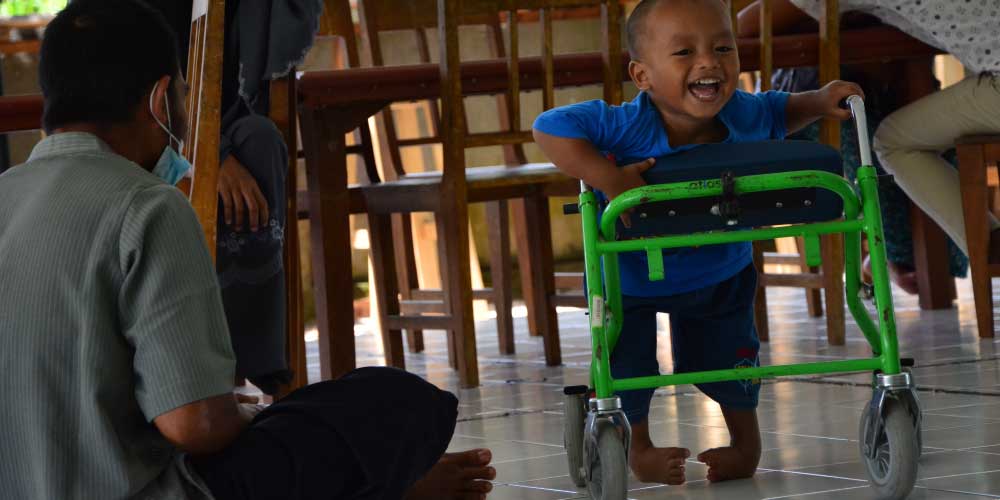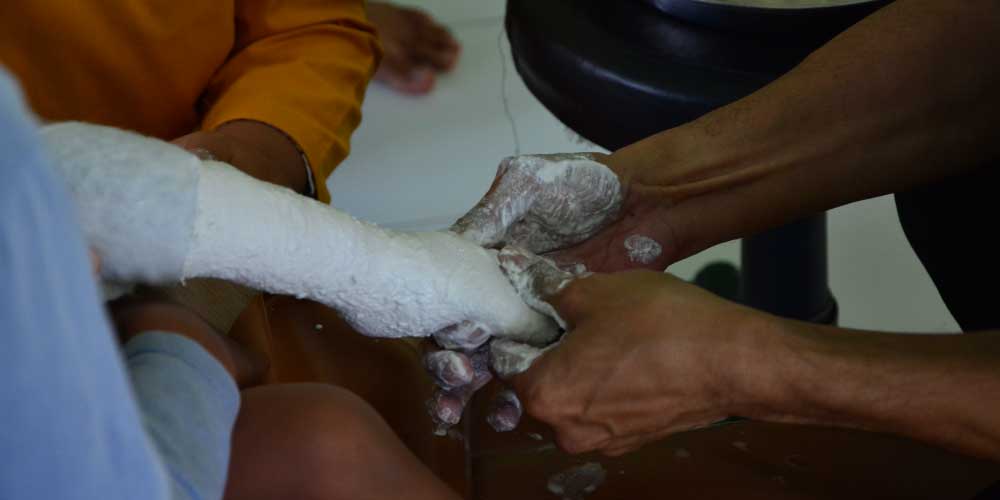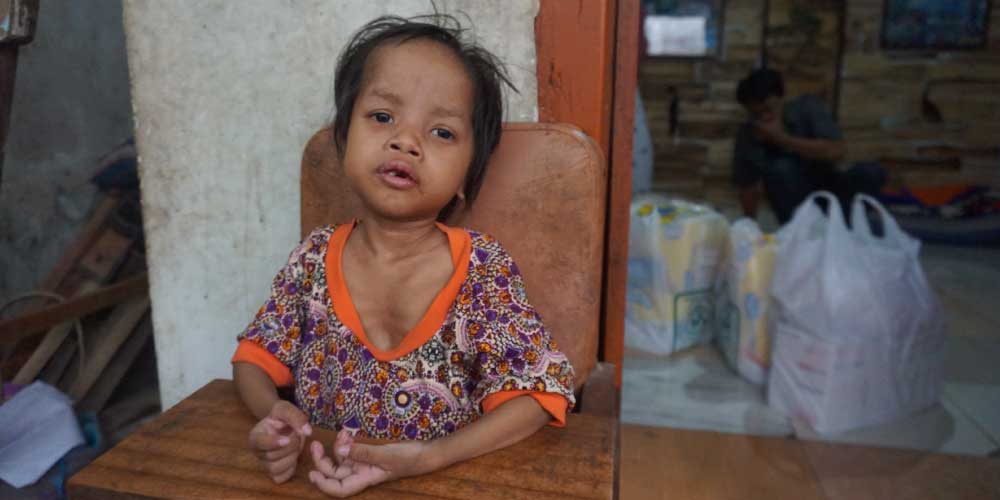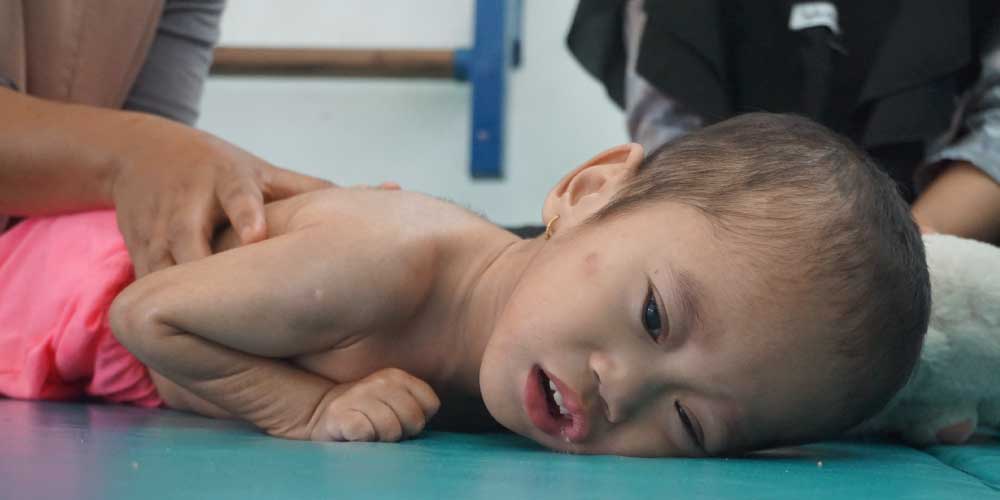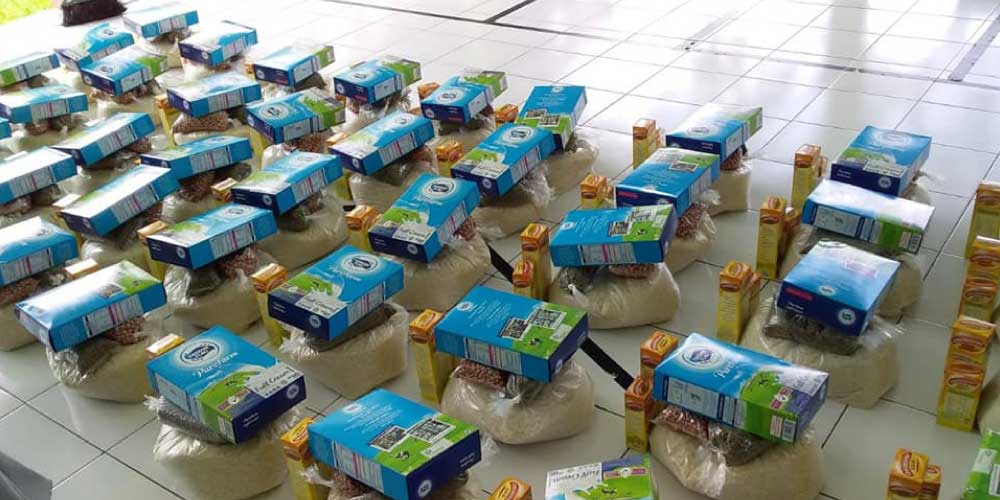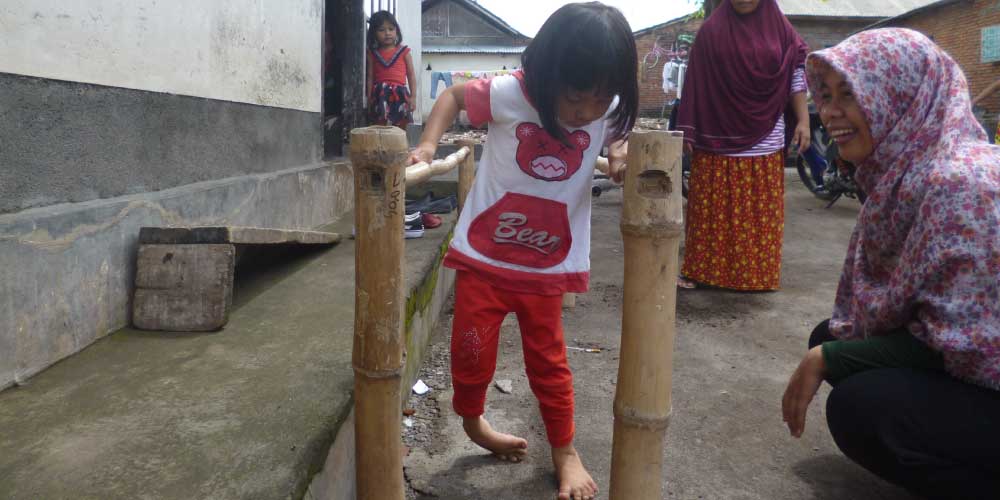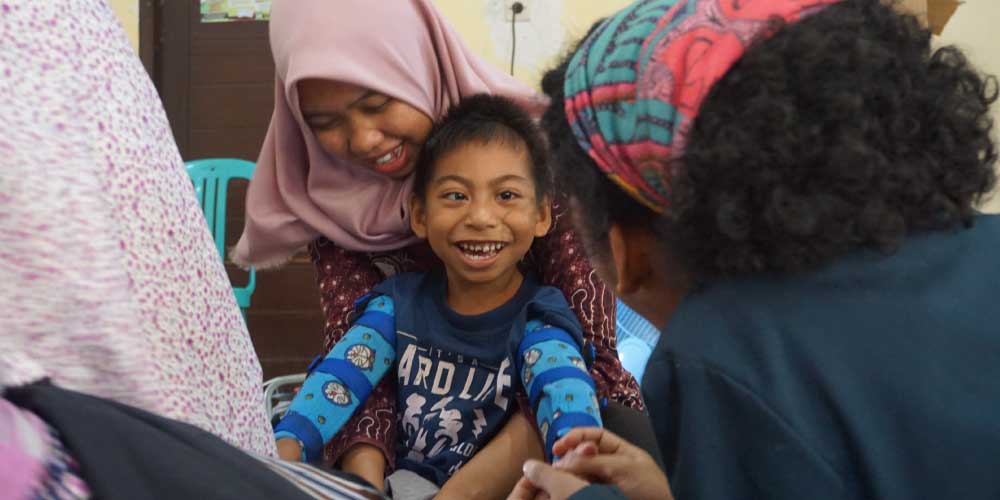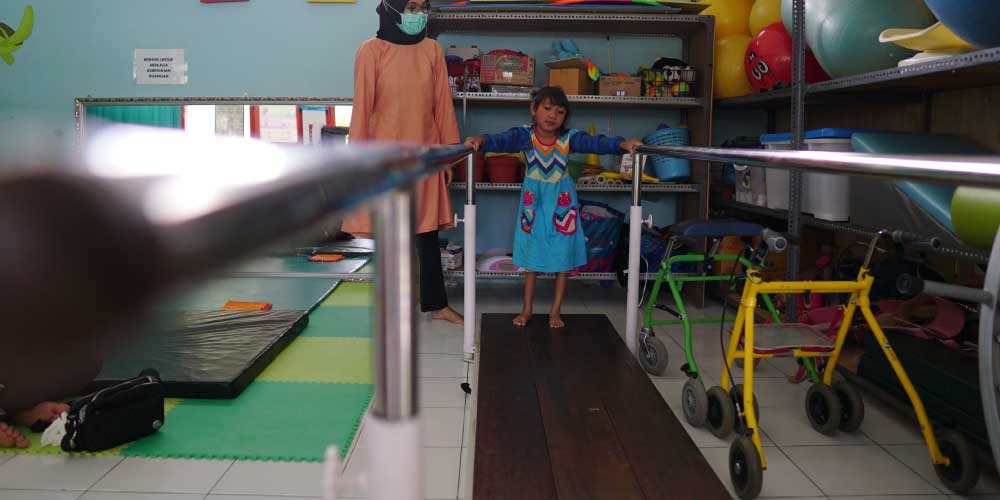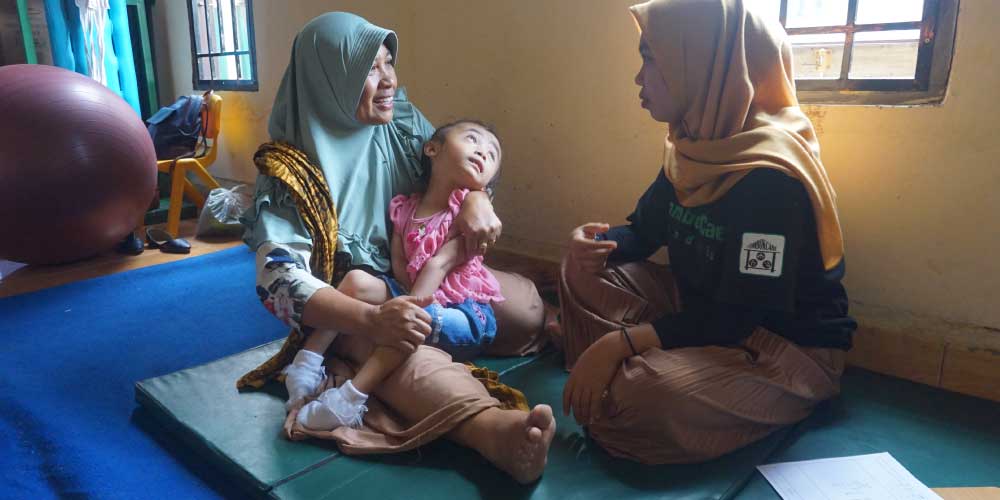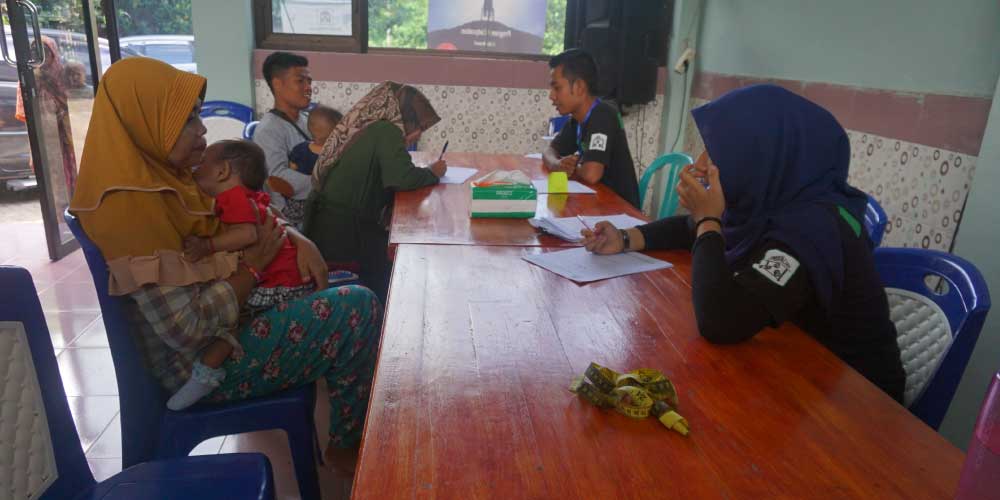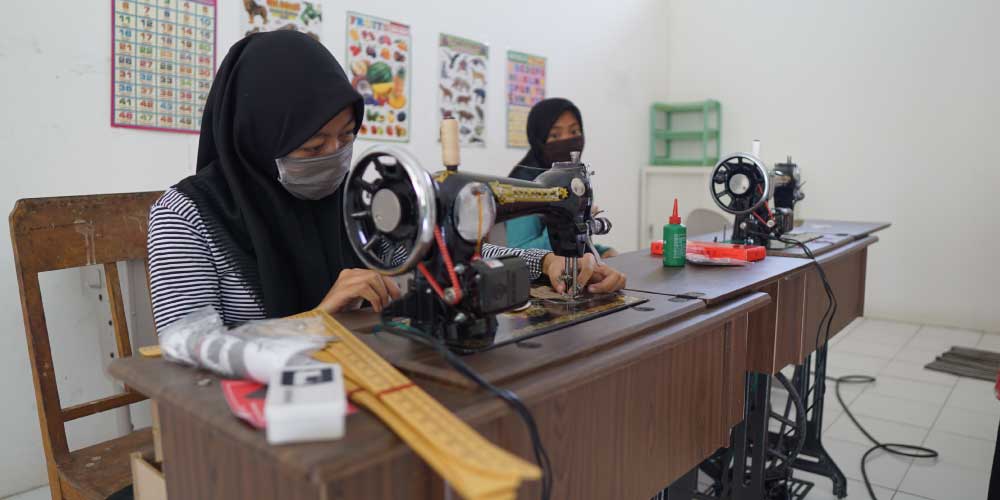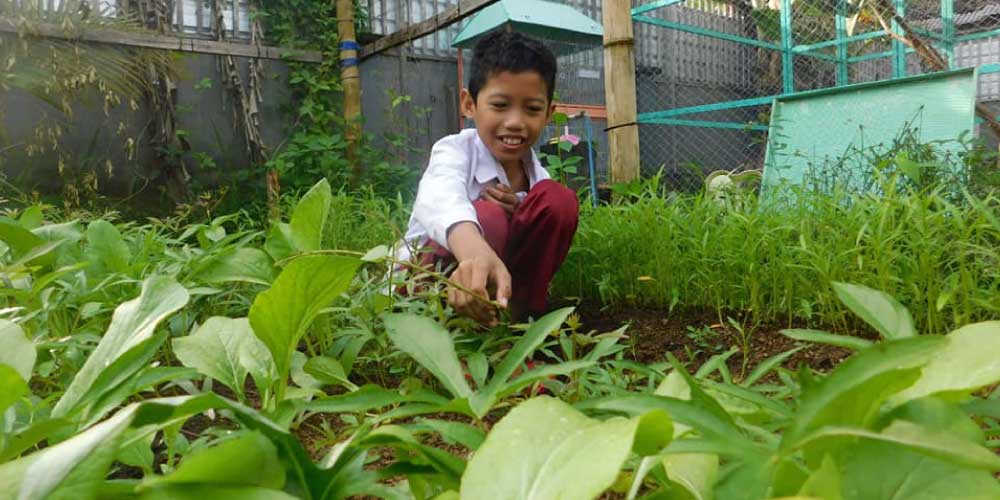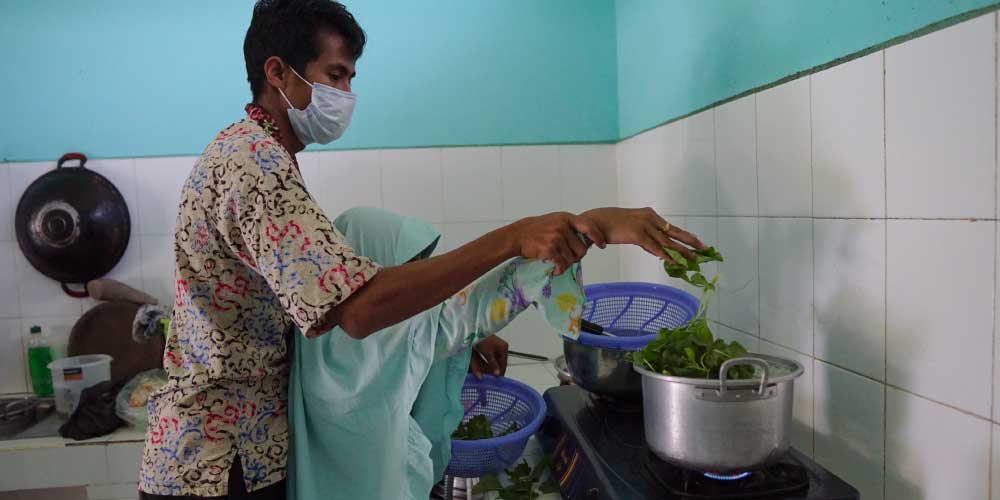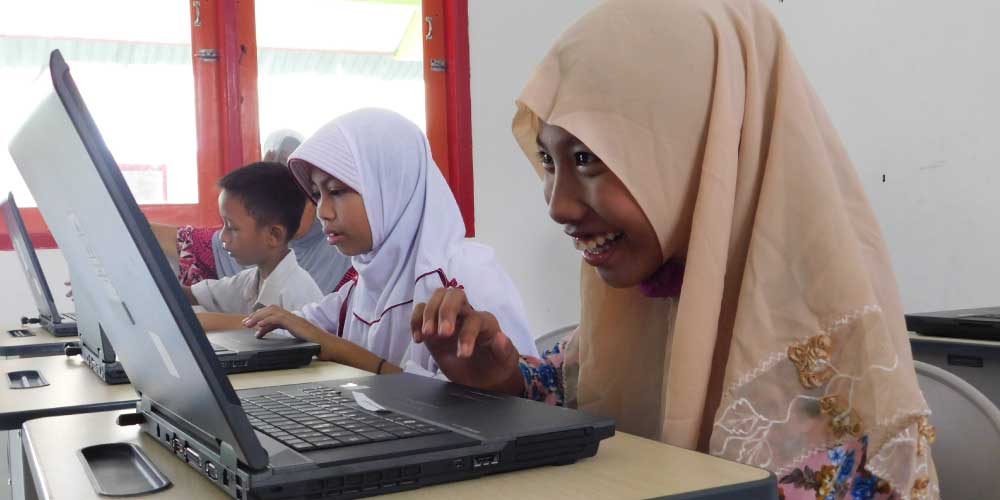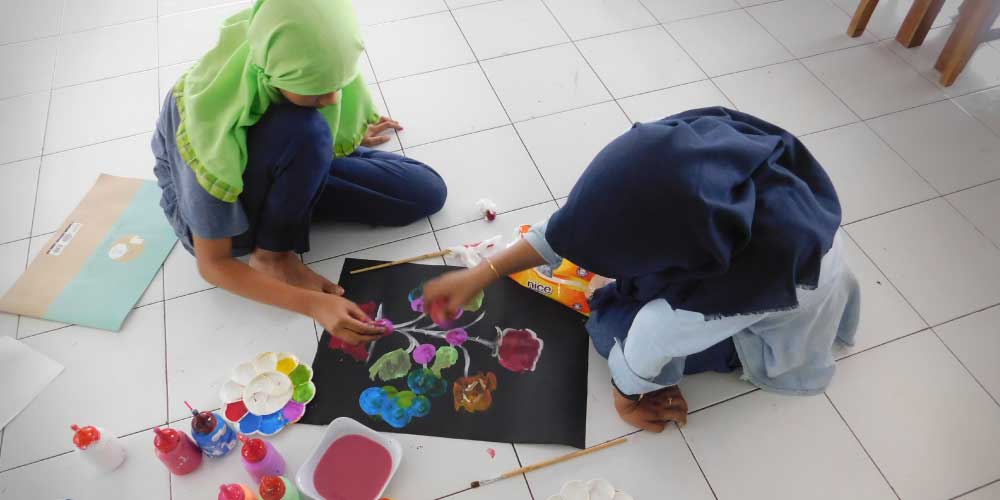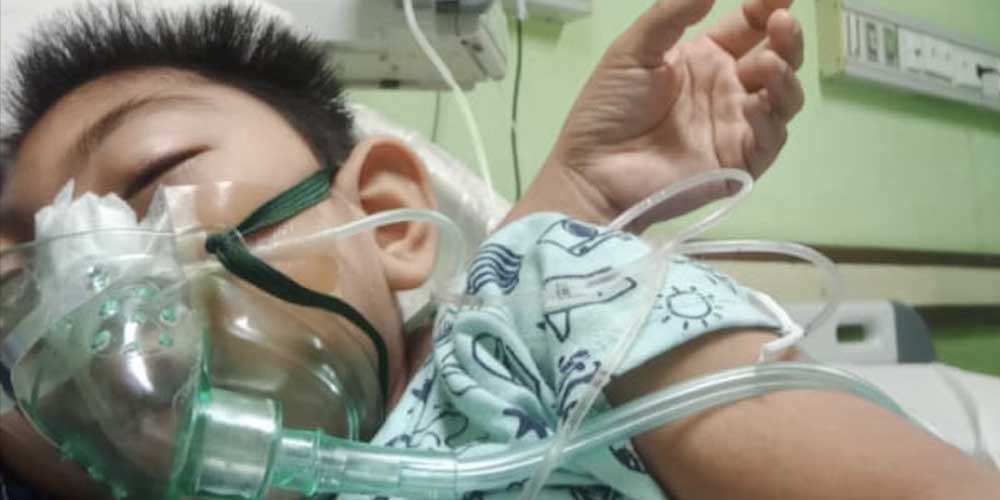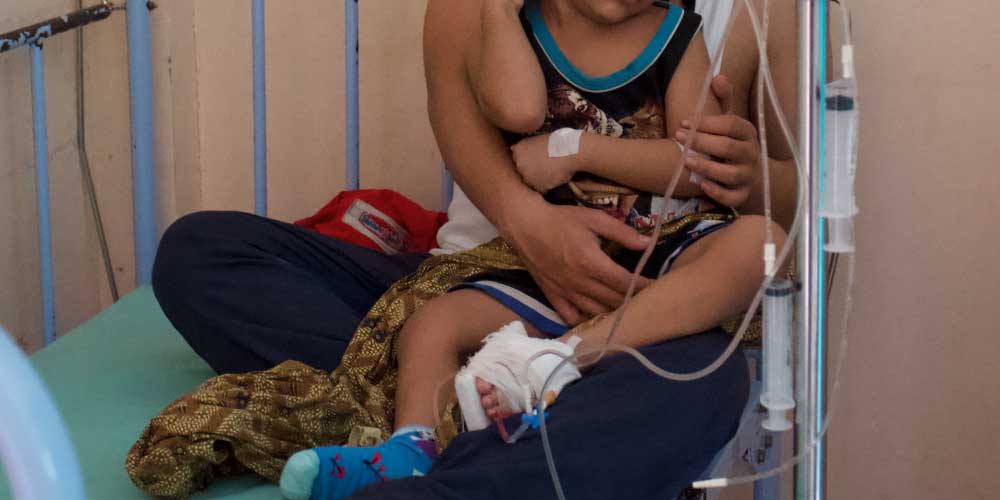Projects For Childen
Clubfoot Project
Nutrition
Therapy Tools & Mobility Aids
Out Reach
Vocational Skills
Medical
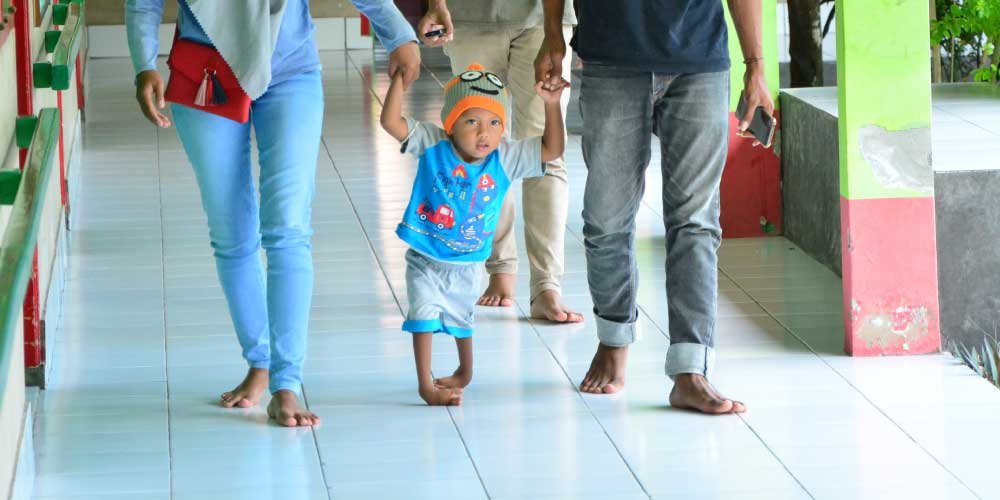
Clubfoot Project
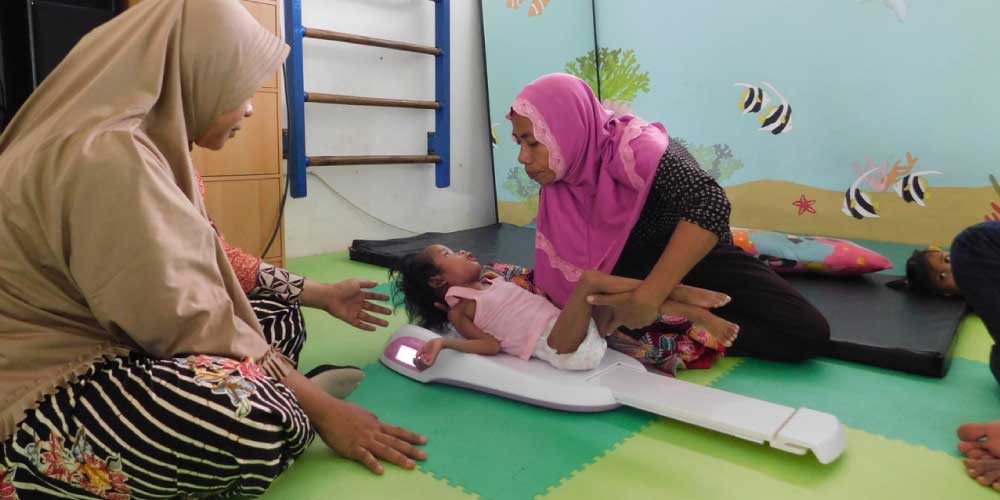
Nutrition
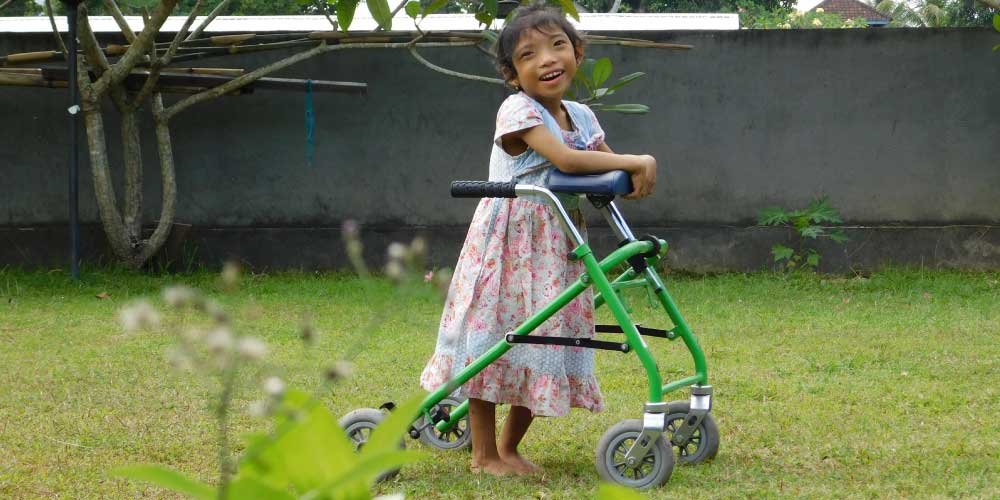
Therapy Tools & Mobility Aids
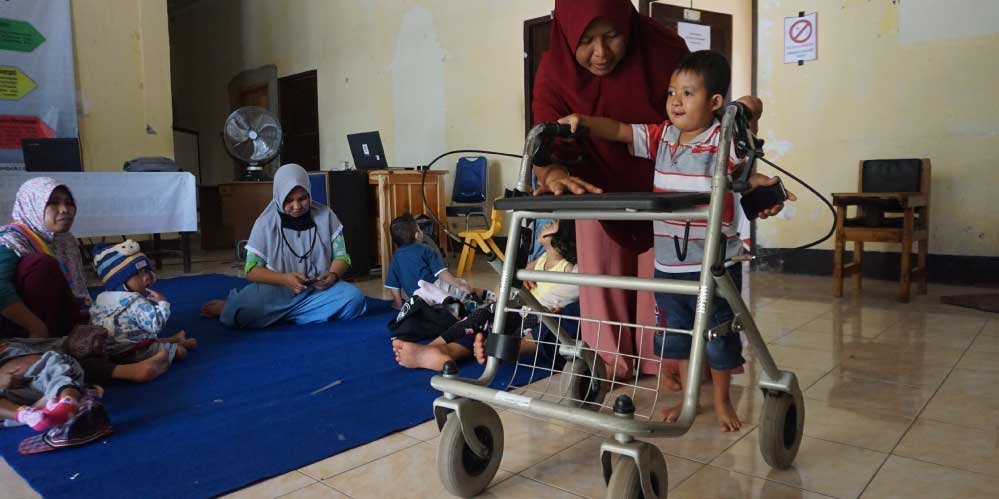
Out Reach
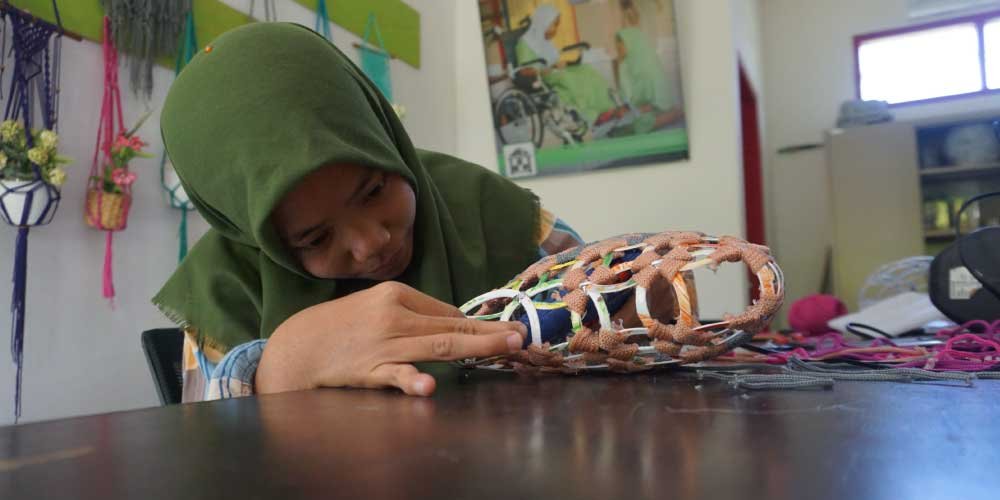
Vocational Skills
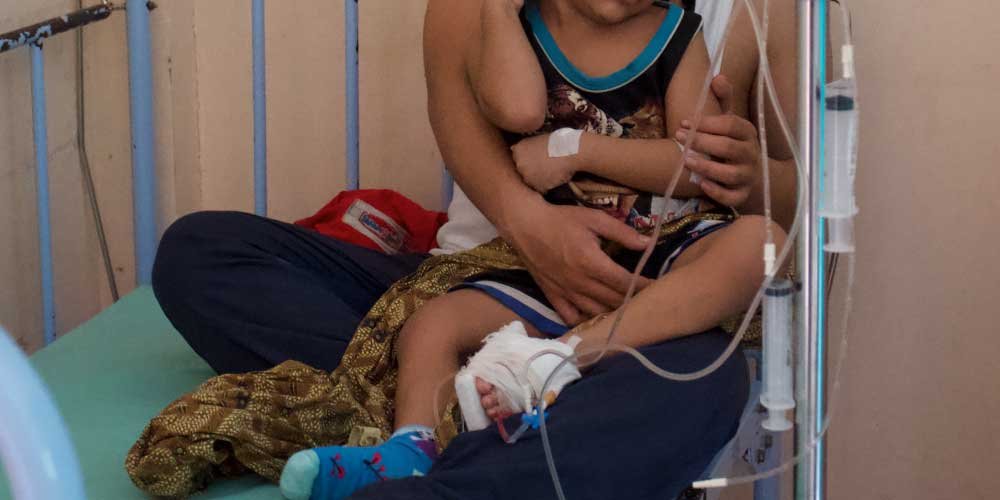
Medical
Clubfoot Project
Clubfoot is a congenital deformity of the sole of the foot in which one or both feet twist in or out, which can happen to anyone. The main cause is unknown and may occur in boys more often than girls. The ratio of clubfoot births estimated to be 1 in 800 births in the world.
Treatment of clubfoot needs to be done as early as possible and the best results can be obtained when the child is under 12 months of age. Early treatment does not cause pain in children and is very easy to do. Using the Ponseti method which consists of a series of casts, minor surgery (tenotomy), and the use of a brace will give better results.
If left untreated, children born with clubfoot are vulnerable to stigma, discrimination and lose the opportunity to get education, work and other social life. Untreated clubfoot conditions also put children at risk of neglect, poverty, and physical violence to sexual violence.
“Clubfoot is not a permanent disability; it CAN be treated”
“Would you like it to eat only
rice with salt on a daily basis?”
Nutrition
Nutrition is very important in the stage of child development. Fulfilment of useful nutrients as a source of energy and immune processes is a basic necessity which many families can’t live up to due to socio-economic circumstances. Approx. 99% of LombokCare’s children are malnourished.
Moreover, children with special needs have health conditions that are much more vulnerable than other children their age. As the children assisted by LombokCare are dominated by often moderate and even severe malnourished children based on weight measurements, they really need support for nutrient dense products so they can: – be stimulated for overall growth and development – maintain resistance from various diseases – improve brain development – produce more energy for therapy.
Therapy Tools & Mobility Aids
In Indonesia, mobility aids are often giving to quickly to young children. Even though given with positive intentions, if the child is given a tool that doesn’t suite the child’s conditions, mobility aids can even make their conditions worse.
At LombokCare we encourage the child to active movement, while sitting in an inappropriate wheelchair can make the child passive. Especially in the golden age (0-5 years), children need to be stimulated to movement in order to achieve progress in the overal growth and development. Therapy tools however can be a wonderful aid for parents guiding therapy at home.
Our therapists screen every child on which tools / aids are useful for their specific conditions. Tools & aids that we often use are gym balls, standing tables, corner chairs, braces, Angkle Foot Orthoses (AFO), Knee Angle Foot Orthoses (KAFO), child walkers and adaptive wheelchairs. Therapy tools and mobility aids are not easy to get in Lombok which means we have to order it or even produce it ourselves.
“One single adjustment in a child’s environment can make a big change.”
“Real, sustainable community change
requires the initiative and engagement of community members.”
Out Reach
Still a lot of children with disabilities are facing difficulties in getting access to essential rehabilitation facilities and services, because many of them live far away in remote villages and are hampered from reaching medical institutions. Due to a lack of information resources, families and people with disabilities often lack knowledge and experience about handling people with disabilities.
The Out Reach program has been executed by the LombokCare in several regions; Central Lombok (a.o. Praya, Pengadang, Kuta, Batukliang, West Lombok (a.o. Gerung, Mangsit) and many other locations.
The Out Reach program strategy emphasises the family & community based rehabilitation, in which the family based rehabilitation empowers the parents in guiding their child with a disability, and the community based rehabilitation spreads the importance of both early detection and early intervention and the concept of an inclusive environment.
Vocational Skills
To foster self-confidence, to empower by providing them certain skills to learn and to prepare them to be ready to work activities. These are the main goals for LombokCare’s vocational skills program.
The Vocational Skills program is not only aimed at children with special needs or young adults with a disability who are assisted by LombokCare, but also targets other children to create an inclusive environment in which they can learn together.
LombokCare’s Vocational Skills include crafting, computer, painting, sewing and cooking, for which we recruite professional tutors in each area of expertise to assist and train the beneficiaries.
It’s all about finding out their interests and talents and letting them explore different skills to learn. Giving them the opportunity to discover and explore is worth diamonds.
“Giving them the opportunity to discover and explore is worth diamonds.”
“Being disabled shouldn’t mean being disqualified from having access to every aspect of life, including medical health care.”
Medical
People with disability are facing various barriers when they attempt to access healthcare including unaffordable costs, limited availability of services, physical barriers and inadequate skills and knowledge of healthcare workers. Not to forget that especially children with a disability from disadvantaged families often have to deal with a lowered immune system.
In order to maximize the development of therapy and minimize worsening conditions, LombokCare tries to obtain as much detailed information as possible for certain cases. LombokCare also concerns about providing assistance to children who have a history of acute or chronic diseases who need medical services as quickly as possible such as malnutrition, epilepsy, autoimmune, and other diseases. Medical assistance is carried out by means of fundraising, in the near future we attempt to cooperate with health institutions and specialists to refer our children to. In urgent cases our team gets into the fieldwork to assist the child and the family towards proper medical healthcare by reducing the financial and distance related barriers (transportation issues).




